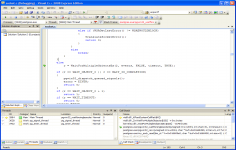 PostgreSQL 9.0.0
PostgreSQL 9.0.0
PostgreSQL Global Development Group - (Freeware)
PostgreSQL is a good choice when it comes to object-relational database management system, being one of the strongest competitors for Microsoft SQL Server, Firebird, Oracle, Sybase.
PostgreSQL for Windows is a software for managing relational database and Ordbms objects that will run on your operating system. It is recognized worldwide for its stability and its programming possibilities particularly extensive in the engine of your database using the PL / pgSQL.
PostgreSQL is the main competitor for MySQL, Firebird, Oracle, Sybase or Microsoft SQL Server and it is fully ACID compliant and has support for foreign keys, joins, views, triggers, and stored procedures. It also includes the windowing functions, common table expressions and recursive joins a parallel restore, consolidated hash indexes, support for SSL certificates for user authentication, routines statistics function, etc.It allows to manage tables, libraries for many languages to access records from programs written in Java (JDBC), C + + / C, Perl or Tcl / Tk.ODBC API allows any application that supports this type of interface to access PostgreSQL databases.
PostgreSQL is highly customizable running stored procedures in more than a dozen programming languages, including Java, Perl, Python, Ruby, Tcl, C/C++,and its own PL/pgSQL, which is similar to Oracle's PL/SQL.
- Title:
- PostgreSQL 9.0.0
- File Size:
- 44.9 MB
- Requirements:
- Windows (All Versions)
- Language:
- en-us
- License:
- Freeware
- Date Added:
- 20 Sep 2010
- Publisher:
- PostgreSQL Global Development Group
- Homepage:
- http://www.postgresql.org
- MD5 Checksum:
- C8B7B4BD06DD705CA787E31C9D762783
# Major enhancements include:
* Built-in replication based on log shipping. This advance consists of two features: Streaming Replication, allowing continuous archive (WAL) files to be streamed over a network connection to a standby server, and Hot Standby, allowing continuous archive standby servers to execute read-only queries. The net effect is to support a single master with multiple read-only slave servers.
* Easier database object permissions management. GRANT/REVOKE IN SCHEMA supports mass permissions changes on existing objects, while ALTER DEFAULT PRIVILEGES allows control of privileges for objects created in the future. Large objects (BLOBs) now support permissions management as well.
* Broadly enhanced stored procedure support. The DO statement supports ad-hoc or "anonymous" code blocks. Functions can now be called using named parameters. PL/pgSQL is now installed by default, and PL/Perl and PL/Python have been enhanced in several ways, including support for Python3.
* Full support for 64-bit Windows.
* More advanced reporting queries, including additional windowing options (PRECEDING and FOLLOWING) and the ability to control the order in which values are fed to aggregate functions.
* New trigger features, including SQL-standard-compliant per-column triggers and conditional trigger execution.
* Deferrable unique constraints. Mass updates to unique keys are now possible without trickery
* Exclusion constraints. These provide a generalized version of unique constraints, allowing enforcement of complex conditions.
* New and enhanced security features, including RADIUS authentication, LDAP authentication improvements, and a new contrib module passwordcheck for testing password strength.
* New high-performance implementation of the LISTEN/NOTIFY feature. Pending events are now stored in a memory-based queue rather than a table. Also, a "payload" string can be sent with each event, rather than transmitting just an event name as before.
* New implementation of VACUUM FULL. This command now rewrites the entire table and indexes, rather than moving individual rows to compact space. It is substantially faster in most cases, and no longer results in index bloat.
* New contrib module pg_upgrade to support in-place upgrades from 8.3 or 8.4 to 9.0.
* Multiple performance enhancements for specific types of queries, including elimination of unnecessary joins. This helps optimize some automatically-generated queries, such as those produced by object-relational mappers (ORMs).
* EXPLAIN enhancements. The output is now available in JSON, XML, or YAML format, and includes buffer utilization and other data not previously available.
* hstore improvements, including new functions and greater data capacity.
Related software
2.1/5 from 188 users

